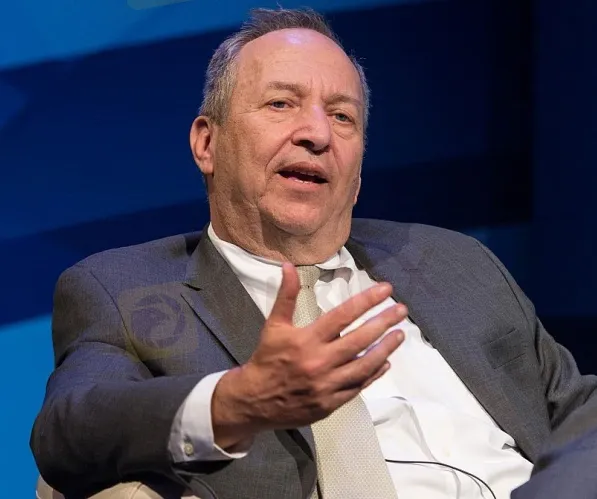简体中文
繁體中文
English
Pусский
日本語
ภาษาไทย
Tiếng Việt
Bahasa Indonesia
Español
हिन्दी
Filippiiniläinen
Français
Deutsch
Português
Türkçe
한국어
العربية
Larry Summers: WH Antitrust Efforts to Fight Inflation Are 'Science Denial'
Abstract:Former Treasury Secretary Larry Summers asserted on Sunday that the antitrust program by President Joe Biden to combat inflation was a form of ''science denial.''

Former Treasury Secretary Larry Summers asserted on Sunday that the antitrust program by President Joe Biden to combat inflation was a form of ''science denial.''
''The emerging claim that antitrust can combat inflation reflects 'science denial,''' Summers, a Harvard economist, posted on a Twitter thread. ''There are many areas like transitory inflation where serious economists differ. Antitrust as an anti-inflation strategy is not one of them.''
''Hipster Brandeisian antitrust, with which the admin and its appointees flirt, is more likely to raise than lower prices.''
Summers added that the antitrust efforts would lead to reduced supply and higher prices in the short term, and he urged the administration to focus on the labor shortage instead.
The comments by the former treasury secretary to President Bill Clinton come as the Biden administration investigates meat and oil conglomerates for anti-competitive practices, which several officials have alleged may be exacerbating inflation, the Daily Mail reported.
Biden has reportedly pushed for Agriculture Secretary Tom Vilsack to investigate large meatpackers that control a prominent share of poultry and pork markets.
Further, the president asked the Federal Trade Commission in October to investigate whether ''illegal conduct'' was leading to higher gas prices.
''Monopoly may lead to high prices, but there is no reason to expect it to lead to rising prices unless it is increasing,'' Summers continued. ''There is no basis whatsoever thinking that monopoly power has increased during the past year in which inflation has greatly accelerated.''
The Bureau of Labor Statistics' consumer price index (CPI), which measures inflation, showed a 6.8% increase from November 2020 to November 2021. The index for all items other than food and energy was up 4.9% over the same period.
For more blockchain news, please download WikiBit - the Global Blockchain Regulatory Inquiry APP.

Disclaimer:
The views in this article only represent the author's personal views, and do not constitute investment advice on this platform. This platform does not guarantee the accuracy, completeness and timeliness of the information in the article, and will not be liable for any loss caused by the use of or reliance on the information in the article.
Read more

This Economic Indicator Sparks Speculation of a Japan Rate Hike!
The latest data shows that Japan’s base wages in November rose by 2.7% year-on-year, marking the largest increase in 32 years, fueling speculation about a potential BOJ rate hike, but Governor Kazuo Ueda’s dovish remarks in December have shifted market expectations toward a potential delay in policy adjustments.

Rising U.S. Corporate Bankruptcies Deepen Economic Concerns
In 2024, 686 U.S. companies filed for bankruptcy, marking the highest number since 2010.

Turkey Resumes Rate Cuts Amid Easing Inflation
Turkey’s inflation has eased, prompting the central bank to resume interest rate cuts. Striking a balance between economic recovery and inflation control has become a critical focus. However, significant challenges lie ahead, as Turkey continues to navigate complex economic conditions.

New Year, New Surge: Will Oil Prices Keep Rising?
As of the writing of this article (January 2), oil prices stand at $71.88 per barrel. Investors need to continue monitoring whether the supply and demand dynamics will continue to push prices further up.
WikiFX Broker
Latest News
Attention! Goldman Sachs Cuts Gold Target to $2910
Inflation Rebounds: ECB's Big Rate Cut Now Unlikely
Carney \considering\ entering race to replace Canada\s Trudeau
High-Potential Investments: Top 10 Stocks to Watch in 2025
US Dollar Insights: Key FX Trends You Need to Know
Why Is Nvidia Making Headlines Everywhere Today?
Discover How Your Trading Personality Shapes Success
FINRA Charges UBS $1.1 Million for a Decade of False Trade Confirmations
Pepperstone Sponsored the "Aston Martin Aramco Formula One Team"
ACY Securities Integrates MetaTrader 5 to Enhnace Copy Trading Service
Currency Calculator






